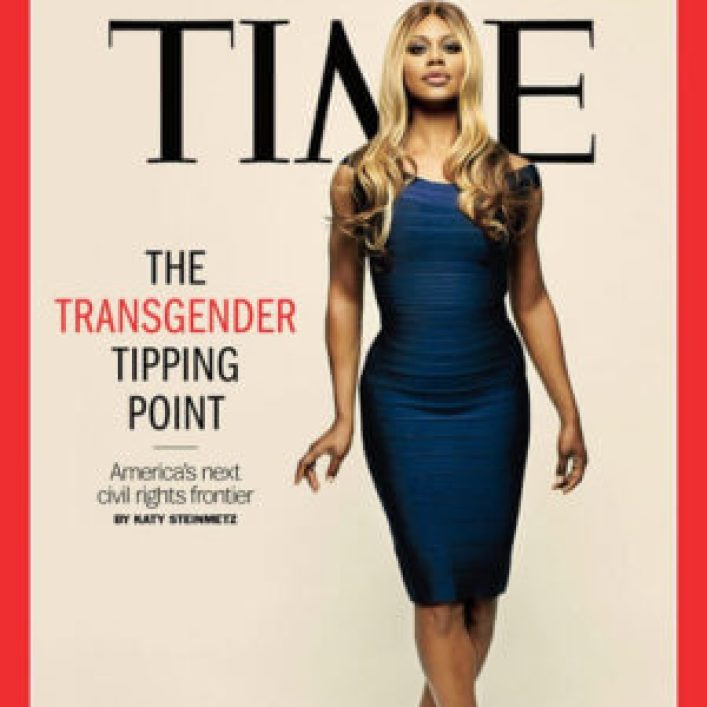Transgender Part 4 – What the Bible say: The Fall
October 6, 2016

The Bible acknowledges that things can and do go wrong with our sense of identity – sometimes horribly wrong. Because of human rebellion and sin we live in a fallen world. Everything about our world is broken, and feels a bit wrong. And everything about humans is broken, too – the way we think, the way we feel, the things we desire and the things we do. It’s all twisted and messed up by sin. And because we are alienated from God by this sin, we have also become alienated from each other and, crucially, from ourselves.
There is a painful disconnect between what we are, what we feel, and what we want to be. Jesus acknowledges the problem when he deals with the categories of Eunuch in Matthew 19:12
“’For there are eunuchs who were born that way, and there are eunuchs who have been made eunuchs by others, and there are those who choose to live like eunuchs for the sake of the kingdom of heaven. The one who can accept this should accept it.’”
In the beginning, as God made us, there would have been no eunuchs at all – the very idea would have been unimaginable. Because we’re made for relationship, we have sex and a sexual identity. To have no sex, to be robbed of the possibility of intimacy and closeness and sexual love and marriage and parenthood – that is a terrible thing. The very existence of eunuchs is one of the horrible consequences of sin. And Jesus says, some people are just born that way. Some people, because of their bodies, cannot ever hope to enjoy sex, or become a parent, and will miss out on all the love and joy that go along with those things. Other people are born okay, but men make them eunuchs.
But it isn’t just bodies that can be broken, and make it impossible for us to enjoy relationship and love the way God originally designed. So can our minds. Some people won’t ever enjoy a biblical marriage because they don’t want it – because they’re selfish, or because they’re not heterosexual, or because they’re not interested in sex at all. A small number of people are born with bodily defects that force this on them; but many more people, by the time they start to become sexually aware at puberty, are already damaged or broken in their sense of sex and sexuality in some way. Maybe they were born that way; maybe the sin of other people, perhaps abuse or something they saw or experienced in childhood made them that way, perhaps the fault of their parents or perhaps nobody’s fault at all.
There will be people that battle in this fallen world with feelings of being in the wrong body; and there will be people who have desires to relate, sexually, to other people in ways God has forbidden. Our bodies and our minds and desires, because of sin, can all get in the way of us being, feeling and doing what we want.
But notice the third category Jesus gives – those who live like eunuchs for the sake of the kingdom. He’s talking about people who, for example, in order to better do the work God has given them (and he gives work to all of us!) decide they won’t get married and therefore will never have sex or children. They get some more time, and some freedoms they otherwise wouldn’t – which they can use for God – but they miss out on some of life’s blessings and joys. Jesus was like that. And a few years ago a man called John Stott died who was like this. He did great things for Christians in this country, and you can still get lots of great books by him. And Vaughan Roberts is a preacher like this today; because he is homosexual, in obedience to God, he is celibate, and lives a life where sex has no real part. There are many such people. Life without sex, but with God, can be wonderfully fulfilled. Jesus did not live a second-rate life!
If your body, or your emotions, or your sexuality, mean that you can’t enjoy a marriage like Adam and Eve’s, God calls you – for the sake of the kingdom – to live like a eunuch; forget about sex, and get on with serving God. And if your body feels wrong to you, especially the sex of your body, the same applies to you. Applying the label transgender and offering to change your biology is not an act of love or kindness.
Paul McHugh, MD, is University Distinguished Service Professor of Psychiatry at John Hopkins Medical School. He writes.
“…let us address the basic assumption of the contemporary parade: the idea that exchange of one’s sex is possible. It, like the storied Emperor, is starkly, nakedly false,Transgendered men do not become women, nor do transgendered women become men. All (including Brice Jenner) become feminised men or masculinised women, counterfeits or impersonators of the sex with which they ‘identify’. In that lies their problematic future.
When the ‘tumult and shouting dies,’ is proves not easy nor wise to live in a counterfeit sexual garb.
The most thorough follow-up of sex-reassigned people – extending over thirty years and conducted in Sweden, where the culture is strongly supportive of the transgendered – documents their lifelong mental unrest. Ten to fifteen years after surgical reassignment the suicide rate of those who had undergone sex-reassignment are twenty times that of comparable peers.”